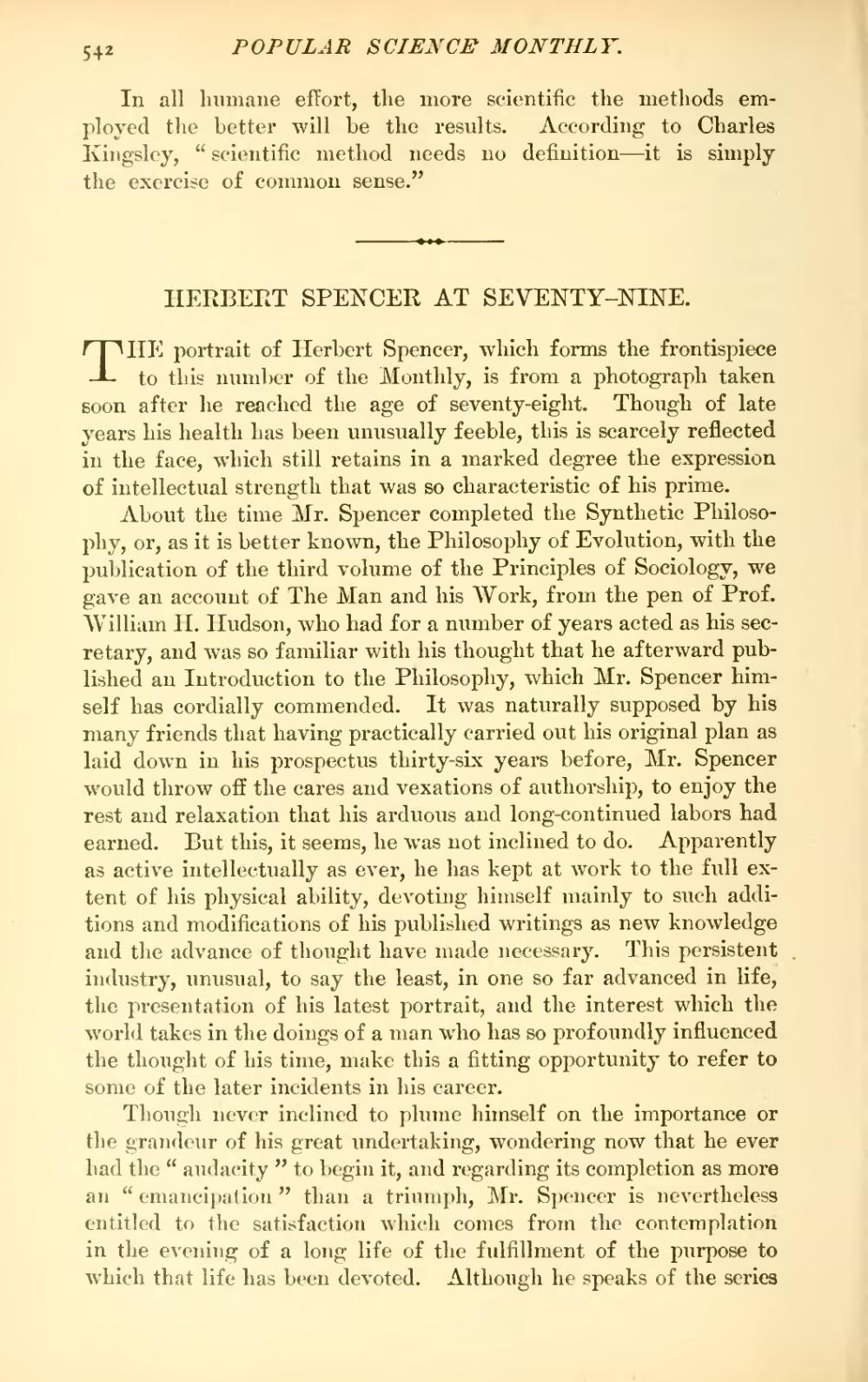In all humane effort, the more scientific the methods employed the better will be the results. According to Charles Kingsley, "scientific method needs no definition—it is simply the exercise of common sense."
| HERBERT SPENCER AT SEVENTY-NINE. |
THE portrait of Herbert Spencer, which forms the frontispiece to this number of the Monthly, is from a photograph taken soon after he reached the age of seventy-eight. Though of late years his health has been unusually feeble, this is scarcely reflected in the face, which still retains in a marked degree the expression of intellectual strength that was so characteristic of his prime.
About the time Mr. Spencer completed the Synthetic Philosophy, or, as it is better known, the Philosophy of Evolution, with the publication of the third volume of the Principles of Sociology, we gave an account of The Man and his Work, from the pen of Prof. William H. Hudson, who had for a number of years acted as his secretary, and was so familiar with his thought that he afterward published an Introduction to the Philosophy, which Mr. Spencer himself has cordially commended. It was naturally supposed by his many friends that having practically carried out his original plan as laid down in his prospectus thirty-six years before, Mr. Spencer would throw off the cares and vexations of authorship, to enjoy the rest and relaxation that his arduous and long-continued labors had earned. But this, it seems, he was not inclined to do. Apparently as active intellectually as ever, he has kept at work to the full extent of his physical ability, devoting himself mainly to such additions and modifications of his published writings as new knowledge and the advance of thought have made necessary. This persistent industry, unusual, to say the least, in one so far advanced in life, the presentation of his latest portrait, and the interest which the world takes in the doings of a man who has so profoundly influenced the thought of his time, make this a fitting opportunity to refer to some of the later incidents in his career.
Though never inclined to plume himself on the importance or the grandeur of his great undertaking, wondering now that he ever had the "audacity" to begin it, and regarding its completion as more an "emancipation" than a triumph, Mr. Spencer is nevertheless entitled to the satisfaction which comes from the contemplation in the evening of a long life of the fulfillment of the purpose to which that life has been devoted. Although he speaks of the series

